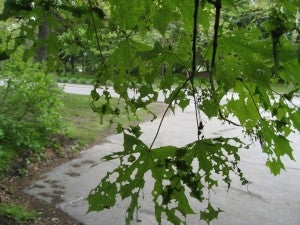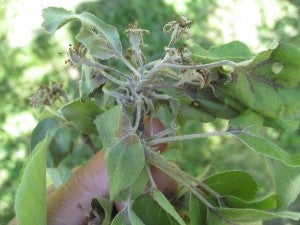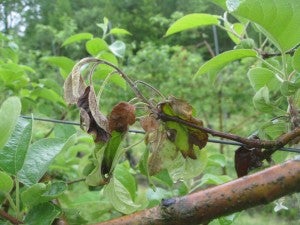Final twilight meeting & orchard update
If it ever rains again, more primary season apple scab spores will be released and able to cause an infection. Usually we are past primary scab season by the end of May, but with so little rain there are still plenty of spores to be released. UMass has been sampling apple scab spores and they say the spores are still very healthy and ready to be released. Keep your apple trees protected with a fungicide until we get more than 1/10 of an inch of rain which will hopefully release the remaining overwintering spores.
Plum curculio love this warm, humid weather. According to Orchard Radar, an insecticide applied May 26 or later in Providence County and June 1 or later in Newport County, should protect your trees through the end of plum curculio season. See Orchard Radar at https://web.uri.edu/ipm/ to see this model and many other models.
Winter moth caterpillars are basically finished feeding for the year. In addition to winter moth, gypsy moth caterpillars, eastern tent caterpillars and some other green caterpillars we’ll call green fruit worms have been seen in high numbers this spring. Keep looking for caterpillars feeding on leaves and fruit and apply an insecticide if necessary.
If you aren’t sure you have winter moths near your orchard, now is a good time to walk the perimeter of your orchard looking for winter moth damaged leaves. Attached is a picture of a maple damaged by winter moth caterpillars. If you find damaged leaves on trees around your orchard you’ll want to be prepared to spray your orchard next spring to control winter moth caterpillars.

 Home
Home Browse
Browse Close
Close Events
Events Maps
Maps Email
Email Brightspace
Brightspace eCampus
eCampus




